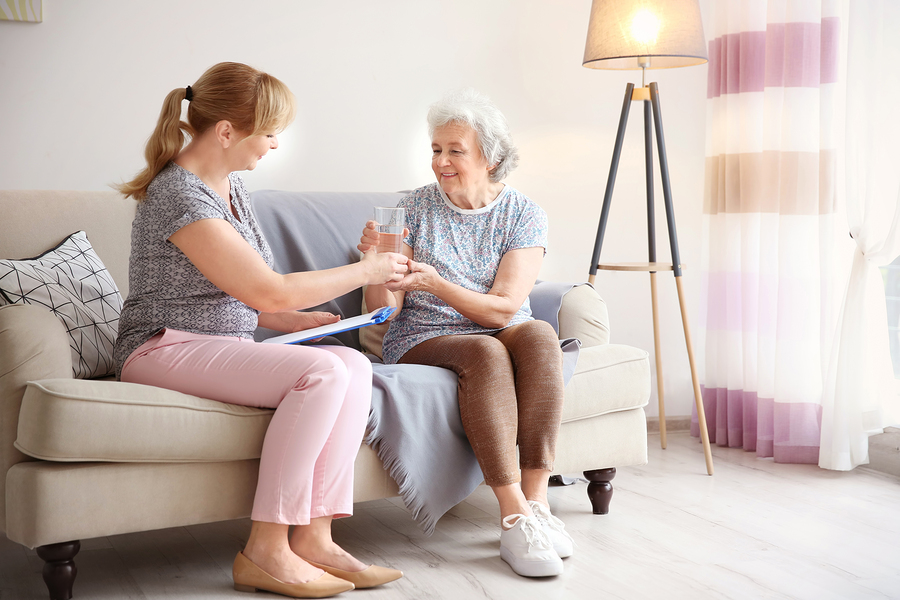Nov 15,2019

Dehydration is a common challenge for adults with a dementia diagnosis and an important condition for their caregivers to understand. Recognizing the signs and causes of dehydration and learning interventions can help caregivers ensure their loved ones are never dangerously dehydrated.
Most older adults are somewhat dehydrated all the time, but it only takes a little to cause an issue. If as little as 2% in body fluid is not replaced it can lead to mild dehydration. Certain medications cause water loss too. And, limited mobility can make it difficult to access hydration aides independently. Not to mention, some older adults may worry about, which means they drink less water and become dehydrated. The effects of dementia and related behaviors in older adults — such as a decrease in thirst and the inability to ask for what they need– add even more reasons someone can become dangerously dehydrated.
Dehydration causes headaches, constipation, concentration problems, confusion, fatigue, bladder, urinary tract and lung infections, low blood pressure and a higher risk for fall-related injuries.
Make sure your loved one drinks 4 to 6 cups of fluids per day, such as water, sugar-free drinks, low sugar juices, milk, smoothies and low sodium broth. Offering high water content foods can also be beneficial. Popsicles, Jell-O, yogurt, cottage cheese, watermelon, strawberries, oranges, peaches, cucumbers, celery and tomatoes are all great choices. Of course, check in with the doctor to make sure that there are no fluid or dietary restrictions due to conditions or medications.
It can be a daily struggle for caregivers to convince the ones they are caring for to hydrate. Providing bright-colored cups and leaving pitchers of cold drinks in sight may help them identify the need. Small plates of finger foods are less overwhelming. Also, making hydration a social experience can make it pleasant and a kind of automatic activity.
Are you a caregiver for someone looking for more advice on helping your loved ones stay hydrated and healthy? Email me at kara@elderwelladultday.com and I’d be happy to offer additional advice.
Feel free to contact us with any questions regarding our services or to schedule a visit.